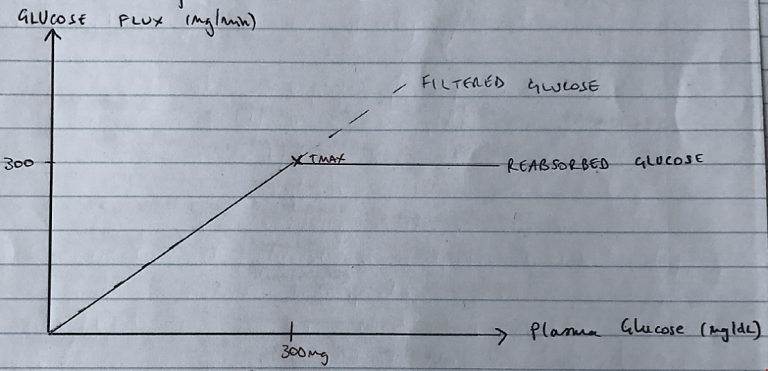H1v: Renal handling of glucose
- Glucose = dietary monosaccharide used for aerobic metabolism
- Glycosuria = excretion of glucose in urine → pathological
Renal Handling
Filtration: glucose is freely filtered
- Filtered glucose = GFR x [plasma glucose]
= 125mL/min x 80mg/dL
= 12.5dL/min x 80mg/dL
= 100mg/min
Reabsorption: all glucose is completely reabsorbed by active transport
- Na/K/ATPase creates electrochem gradient on BL membrane (active transport)
- SGLUT carries glucose coupled to Na= on apical membrane (2nd active transport)
- Enters renal ISF via GLUT transporter (facilitated diffusion) → peritubular caps
→ Concentration of glucose in tubules falls rapidly, faster than H2O
→ ∴indicates it is actively reabsorbed
- Reabsorption occurs at PCT
- Secretion does not occur
- It should NOT appear in the urine
Consequences of Glycosuria
- Loss of energy substrate
- Loss of fluid → any glucose not reabsorbed is an osmole in the tubule which prevents H2O reabsorption
- Loss of K+ → K+ secretion ∝flow ∴↑flow = ↑K+ loss
- Predisposes to UTI
